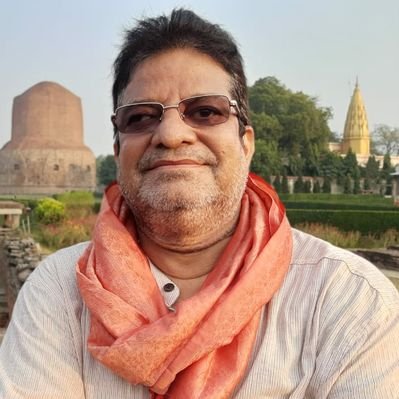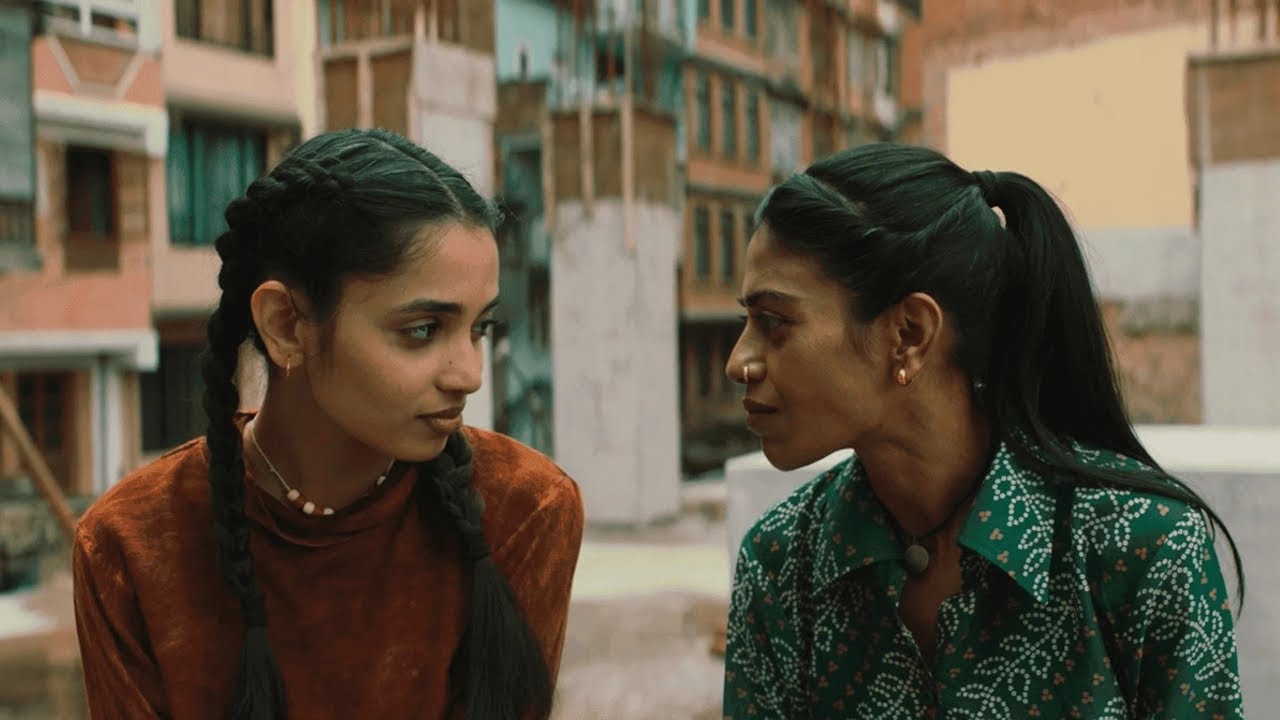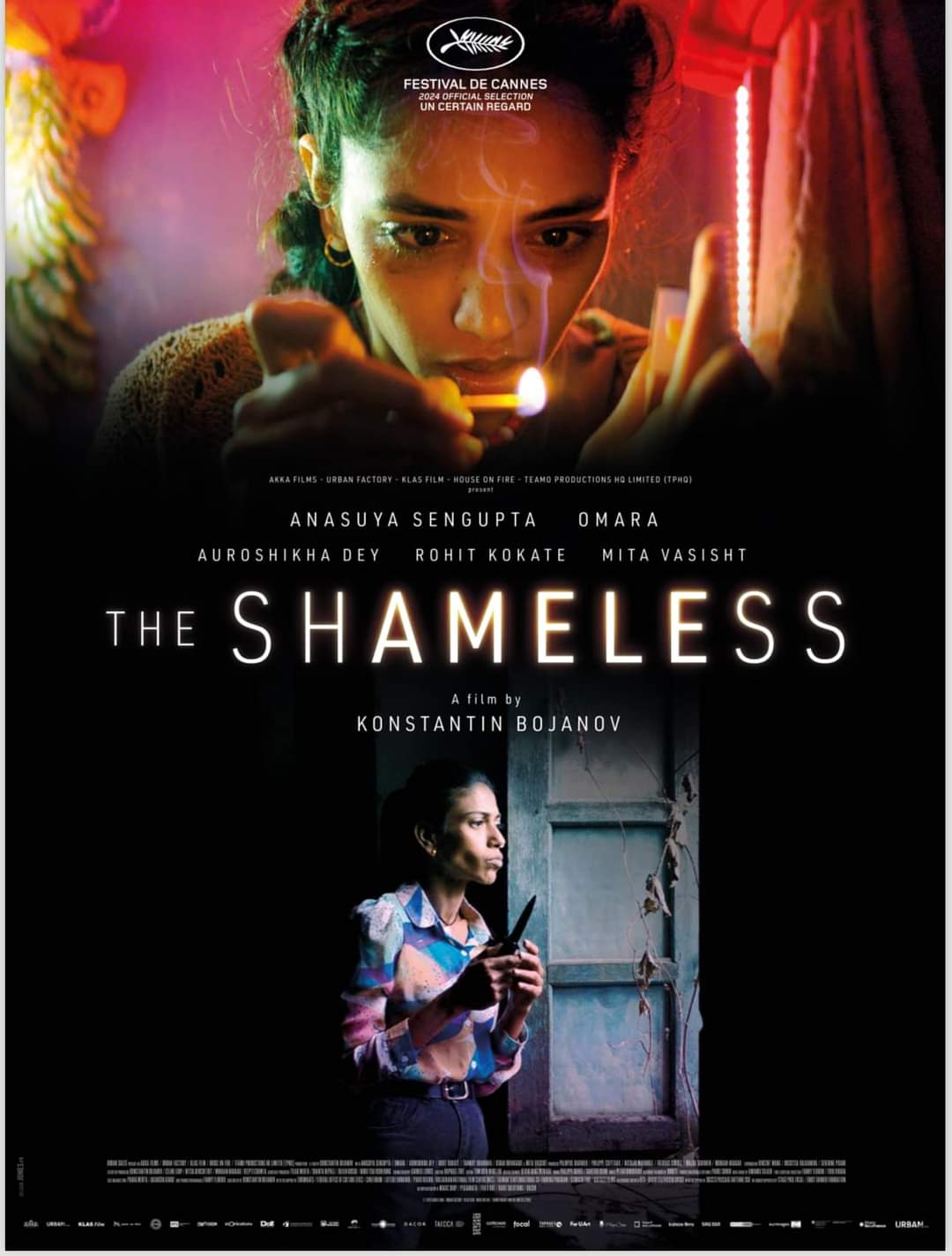 Ajit Rai
Ajit Rai
One of the most talked-about films at the Mumbai Film Festival MAMI was Bulgarian director Konstantin Bozanov’s Hindi film The Shameless. This film, written by Bozanov, was shown in the Focus South Asia section of the MAMI Film Festival. Audiences went crazy over it.
Mohan Nadar’s company TPHQ is the Indian producer of this film. Due to its adult and sensitive content, some scenes of this film had to be shot in Nepal.
The Shameless was shown in the second most important section of the 77th Cannes Film Festival, Un Certain Regard, on 17 May 2024. Anasuya Sengupta, who played the lead role in it, received the Best Actress award.
Anasuya Sengupta became the first Indian artist to receive the Best Actress award at the Cannes Film Festival. It is a coincidence that 15 years ago Anasuya Sengupta came to Mumbai to become an actress but did not get much opportunity. She created history by winning this prestigious award at the Cannes Film Festival.
Poster of The Shameless
After being awarded at the Cannes Film Festival, this film continued to make headlines in film festivals. Mita Vashisht, Omra Shetty, Rohit Kokate, Auroshikha Dey, etc. are actors in the film.
Mita Vashisht has given an unmatched performance. Omra Shetty is simply superb. It is also a pleasant surprise that once again foreign directors are showing interest in making films in India, especially in Hindi.
The Shameless is known not only for Anusuya Sengupta’s brilliant performance but also for Gabriel Lobos’s cinematography. He managed to harmonise sound, emotions, visuals, and words
Whether it is the opening scene of the film where the girl escapes after killing a police officer at a brothel on GB Road in Delhi at midnight or the final scene where she walks along the railway tracks in search of freedom, the film focuses on the fragmented identity of the Muslim community in India and the Indian womanhood formed by the tender and unusual friendship between two girls who are forced to work as sex workers amidst the growing right-wing political dominance and religious intolerance.
 Renuka (Anasuya Sengupta) and Devika (Omra Shetty) in a scene from The Shameless
Renuka (Anasuya Sengupta) and Devika (Omra Shetty) in a scene from The Shameless
A Muslim girl uses a Hindu-like name Renuka (Anasuya Sengupta) to work in a brothel on GB Road in Delhi. One day, she kills one of her clients, who is a police officer. She runs away and reaches the red light area of a small town like Chhatarpur in Madhya Pradesh.
Here, Renuka is a chain smoker, drug addict, and a lesbian who also works as a sex worker. Even even agrees to Unnatural sex for money.
She is bold and fearless; she leads a carefree life. She saves money through her broker in Delhi for her intended journey to the Philippines for a better life. She knows that if she is caught, she will either be hanged or given life imprisonment for the murder of a police officer or the police will kill her in an encounter.
Renuka’s major client is a politician, who is preparing to contest elections. He meets 17-year-old Devika (Omra Shetty) whose family has been in Prostitution for three generations. Her mother owns a brothel, and her grandmother was once a Devdasi and is into spiritualism. Devika and her siblings want to break free. Her mother had fraudulently sold her elder sister to the pimps in the red light area of Delhi.
She is planning to sell Devika. This gives rise to a conflict among the women of the three generations. Finally, Devika’s mother sends her to a politician to initiate her into prostitution.
In the meanwhile Devika’s mother discovers that lakhs of rupees she earned for selling Devika to the politician are missing. The powerful leader wins the election. The same night, Renuka and Devika meet in the ruins of a building to run away forever.
Renuka is stunned after hearing Devika’s story.
 Poster of The Shameless
Poster of The Shameless
She tells her to wait for her and leaves. Renuka kills the MLA who is being taken out in a victory procession by his supporters. She is caught and beaten to death by the mob.
Devika waits for Renuka all night. When she does not return, in the last scene we see Devika walking along the railway line with her luggage and the sun is rising in the east.
In such a hellish environment, Renuka (Anasuya Sengupta) and Devika (Omra Shetty) find moments of love, sisterhood, and friendship in the solitude of an unfinished building. They dream of running away somewhere far away and starting a new life.
The camera does not go into their provocative physical details but presents a narrative of their suffering. It focuses on the shared experiences of suffering. It is interesting to see how the camera focuses simultaneously on the expressions of happiness and torment on Renuka’s face.
Every movement, motion, and dialogue delivery is a visual. Every scene has a background that has social and political meaning. The film does not try to preach or blame anyone. The plot is woven around situations and human emotions. On one hand, there is the passive spirituality of the grandmother (Mita Vashisht), on the other hand, the cruelty of the mother in fulfilling her family responsibilities, and above all, there is the daughter’s desire for freedom.
The male chauvinistic efforts to control and enslave the women of these three generations are no less. Some people may feel that the film has been weakened by putting a particular political party in the dock in the final scenes of the film.
ALSO READ: Peshawar’s Asif Bashir who saved 44 Hajj pilgrims to be honoured on R-day
For this reason, it seems difficult for this film to be released in India.
This post was originally published on here







